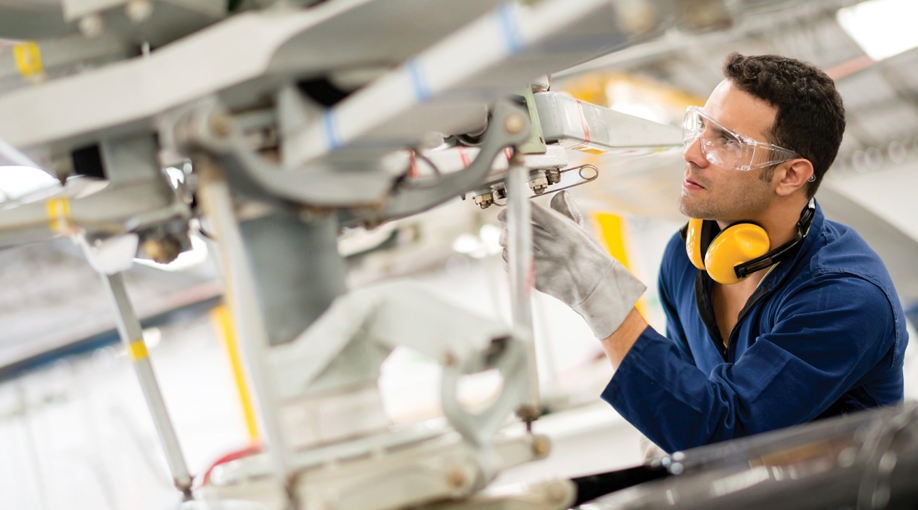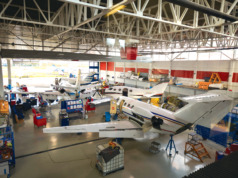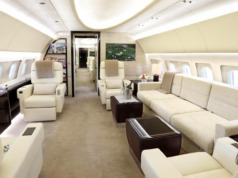
When it comes to controlling aircraft costs, there’s only so much your flight crew can do: enroll in contract fuel programs, select FBOs offering the best fuel price, and fly at the most fuel-efficient speeds and altitudes.
It’s maintenance where the most significant cost control occurs. To ensure both operational safety and asset preservation, your aircraft requires regular maintenance performed by properly trained, qualified, and experienced technicians. Two ways to accomplish this are using outside maintenance services, or engaging your own full time aircraft technician (mechanic).
- You may be able to support your aircraft properly using an outside maintenance provider if:
- You use the airplane an average of once a week,
- You fly fewer than 100 hours/year,
- Your schedule is planned well in advance, with very few “pop up” trips,
- You rarely, if ever, fly to remote locations,
- There is an authorized repair center or mechanic qualified and trained on your make/model at or close to your home base,
AND if your pilots are qualified and willing to assist in the planning of scheduled maintenance events as well as handling the unscheduled, and are capable of maintaining the required aircraft records to remain compliant with all regulations.
If this profile does not match yours, consider hiring your own mechanic. Here’s why:
- Dedicated mechanics do more than simply fix a problem once it’s identified. They work proactively to keep your airplane in pristine condition so it’s always “dispatch ready” – able to depart at a moment’s notice. Doing so requires both superior technical skills and open communication between mechanic and pilots.
- By reviewing the aircraft’s condition after each mission, a dedicated aircraft mechanic develops and maintains detailed knowledge of the aircraft’s own unique peculiarities. This enables him/her to quickly diagnose any problem encountered during any flight segment, and/or respond to those reported by your flight crew.
- If an event occurs during the trip, the mechanic diagnoses the problem and makes arrangements to have the problem resolved either onsite or, if it’s beyond the repair capabilities of the local facility, to secure authorization to ferry the aircraft to the nearest authorized service repair facility. Such events can include anything from an intermittent avionics problem, to an indication of poor engine performance, to a problem with the passenger-comfort systems.
- The mechanic will verify that any parts or services purchased for your airplane are needed and correct, and priced correctly. This includes monitoring any hourly cost maintenance programs covering your engine, airframe, and auxiliary power unit (APU) (See “Hourly Cost Maintenance Programs,” BAA Sept/Oct 2014).
- When it’s time to sell or trade your aircraft, the attention provided by a full-time mechanic helps ensure that you get the best price for your asset. That price will depend largely on the aircraft’s total condition: all mechanical parts (engines, APU, airframe, avionics); exterior paint; the interior; as well as the detailed aircraft records (logbooks, repair invoices and documentation, and service bulletins).
- A dedicated mechanic will take full “ownership” of your aircraft, just as your flight crew does, ensuring a willingness to work long into the night if necessary to be sure your airplane is ready for an early morning departure.
There’s much more involved in maintaining a corporate jet then simply turning wrenches. If:
- you fly more than 100 hours each year,
- having your aircraft ready to go and on call 24/7 is a high priority, and/or
- you are concerned with preserving the value of your asset as well as helping to ensure safety and dispatch reliability, then a dedicated mechanic will provide you with the most reliable and cost effective means to meet your travel requirements – and a better value for your aircraft when it’s time to sell. BAA
Charlie Hughes is SVP, Aircraft Management Sales for Priester Aviation. He has more than 20 years of aviation experience, having held executive-level positions in charter sales and client relations, as well as management sales.




